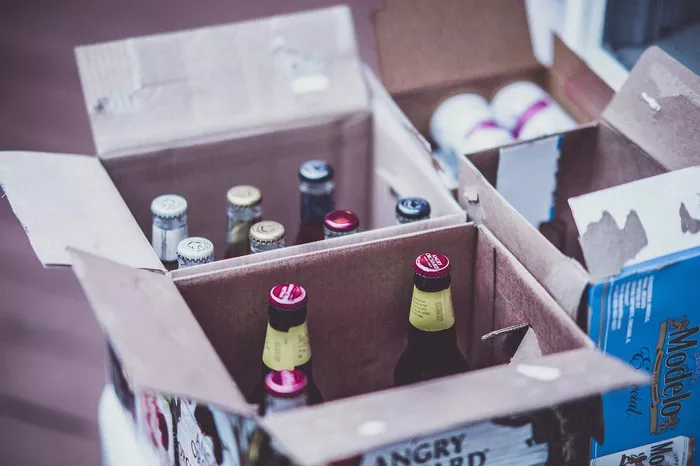Iron deficiency is a prevalent health concern worldwide, affecting individuals of all ages and backgrounds. While the traditional approach to addressing this condition often involves dietary adjustments and iron supplementation, recent discussions have emerged regarding the potential role of beer in managing iron levels. This article explores the relationship between beer consumption and iron deficiency, shedding light on the scientific evidence and offering insights into this intriguing topic.
Understanding Iron Deficiency: A Common Health Challenge
Before delving into the potential benefits of beer, it is essential to grasp the significance of iron deficiency and its impact on human health. Iron plays a vital role in various physiological processes, including oxygen transport, energy production, and DNA synthesis. When the body lacks a sufficient amount of iron, it can lead to a condition known as iron deficiency anemia, characterized by symptoms such as fatigue, weakness, and impaired cognitive function.
The Beer Conundrum: Myth or Reality?
In recent years, discussions about the relationship between beer consumption and iron deficiency have garnered attention within both scientific and public spheres. Some proponents suggest that certain compounds found in beer, such as polyphenols and hops, may contribute to increased iron absorption or utilization. However, conflicting viewpoints and limited empirical evidence have fueled skepticism regarding these claims.
Exploring the Scientific Evidence: What Do Studies Say?
Despite the ongoing debate, several studies have examined the potential impact of beer on iron status, albeit with mixed results. Some research suggests that moderate beer consumption may be associated with higher iron levels in certain populations, particularly among individuals with low dietary iron intake. However, other studies have failed to demonstrate a significant correlation between beer consumption and improved iron status.
The Role of Polyphenols: Unraveling the Mystery
One of the key components of beer that has garnered attention in relation to iron metabolism is polyphenols. These naturally occurring compounds, found in varying concentrations in different types of beer, possess antioxidant properties and have been implicated in various health benefits. Some researchers hypothesize that certain polyphenols may enhance iron absorption by reducing the formation of insoluble iron compounds in the gastrointestinal tract.
Hops: More Than Just Flavor
Hops, the flowers of the Humulus lupulus plant used primarily as a flavoring and stability agent in beer production, have also been the subject of scientific inquiry regarding their potential effects on iron metabolism. While research specifically focusing on hops and iron deficiency is limited, some studies have suggested that certain compounds present in hops may possess antioxidant and anti-inflammatory properties, which could indirectly influence iron status.
Navigating the Controversy: Considerations and Caveats
Despite the intriguing possibilities suggested by preliminary research, it is essential to approach the topic of beer and iron deficiency with caution. Alcohol consumption, including beer, is associated with various health risks, including liver disease, cardiovascular problems, and certain cancers. Moreover, excessive beer consumption can interfere with nutrient absorption and metabolism, potentially exacerbating rather than alleviating iron deficiency.
Practical Implications: Recommendations for Consumers
For individuals concerned about their iron status, it is crucial to prioritize dietary strategies supported by robust scientific evidence. Consuming a balanced diet rich in iron-containing foods, such as lean meats, poultry, fish, legumes, and leafy green vegetables, remains the cornerstone of iron deficiency prevention and management. Additionally, incorporating vitamin C-rich foods, which enhance iron absorption, can further optimize iron status.
Looking Ahead: Future Directions in Research
As interest in the potential relationship between beer and iron deficiency continues to grow, there is a need for further investigation to elucidate the underlying mechanisms and clarify the role of beer consumption in iron metabolism. Well-designed clinical trials, conducted over extended periods and involving diverse populations, are necessary to provide definitive answers regarding the efficacy and safety of beer as a therapeutic or preventive intervention for iron deficiency.
Conclusion: Balancing Enjoyment and Health
In conclusion, while the notion of beer as a remedy for iron deficiency may spark curiosity, the current state of scientific knowledge does not provide unequivocal support for this concept. While certain components of beer, such as polyphenols and hops, hold promise in theory, their actual impact on iron status remains uncertain and requires additional research. In the meantime, individuals concerned about iron deficiency should focus on adopting evidence-based dietary strategies and consult healthcare professionals for personalized guidance. As with many aspects of health and nutrition, moderation and informed decision-making are key principles to uphold, ensuring a balance between enjoyment and well-being.


